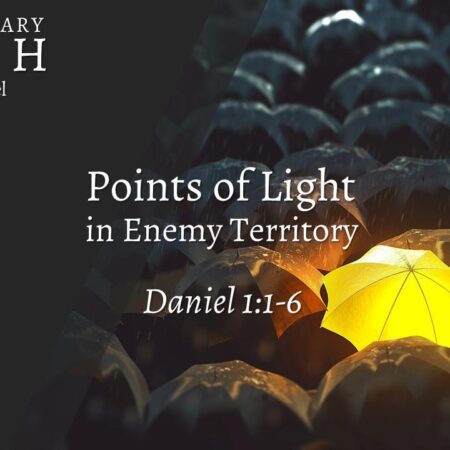Daniel 1:1-6
Jeremiah 3:6-10
2 Chronicles 16:9
Daniel 1:2
Ezra 1:1-2
Ezra 1:7-11
In 2005, Dr. David Jeremiah published A New York Times, Wall Street Journal and USA Today Best Seller book, titled:
“What in the World is Going On?”
“Never before have we read such jarring headlines, distressing news analyses, or dire predictions for our world. There are food shortages, record-high fuel prices, and natural disasters from volcanoes to cyclones. Longtime antagonists China and Japan announce a pledge of peace and friendship while a newly belligerent Russia makes pacts in the Middle East. The president of Iran claims Israel must be wiped off the map while world leaders sit by and say nothing.
When these kinds of stories continue to appear, we can’t help but wonder…what in the world is going on?”
Canadian Professor Lee Beach, published the book titled: “The Church in Exile – Living in Hope After Christendom” (2015)
“Exile implies much more than simple geographical dislocation; it can be a cultural and spiritual condition as well. It is the experience of knowing that one is an alien, and perhaps even in a hostile environment where the dominant values run counter to one’s own.
In other words, one can experience exile even when one returns to or remains in one’s homeland. Well beyond the sphere of religious identity, this observation is confirmed by the experience of artists, poets, political dissidents, philosophers, and religious leaders in countries throughout the world.”
THEY WERE VESSELS SET APART FOR THE GLORY OF GOD. These temple vessels had been made by craftsmen who loved God, as Daniel and his friend did. THEY WERE SACRED.
Dr. John Lennox in his book “Against the Flow” writes:
“The awe of the holiness of God, which the glory of Jerusalem’s temple was designed to convey, is easily lost. And when it is lost, the danger is that symbols that once pointed the way to deeper spiritual and moral realities tend to become ends in themselves. An admiration for church architecture, or an appreciation of religious art and ritual, is not the same as the worship of a glorious God. After all, one does not even have to believe in God to admire the towering spires and the lofty vaulted roof of a cathedral, or to enjoy the singing of a well-trained church choir.”
“By taking symbols that were designed to point to one true God, Creator of heaven and earth, and placing them at the same level as cultic symbols of other gods, Nebuchadnezzar, whether he realized it or not, was demoting God from his absoluteness and making him just one of any number of other possible deities.
Such relativization of the absolute is endemic in the +pick-and-mix” postmodern society of our own century, particularly in the West. Whether you believe in Jesus, Buddha, the Beatles, crystals, mother earth, or perhaps anything else that takes your interest, all are held to be on the same footing; all have equal validity for the relativist. Indeed, many people are convinced that this is by far the safest position to adopt. ABSOLUTES ARE DANGEROUS, they say, especially religious absolutes.”
Dr. Erwin Lutzer “The Church in Babylon” writes:
“We are called to witness within this larger culture that adheres to the values of trash television, hedonism, ever expanding homosexual power and influence, religious antagonism, racial hatred, political wrangling, and the exaltation of individual rights.
Too often, we as evangelicals find ourselves as a minority, out of step with the cultural currents that have been widely accepted by an ever-changing America. The future is easy to predict because many of the children raised in evangelical homes and churches are opting for a more inclusive theology, along with more liberal political agendas. Some will disagree, but I believe researcher John Dickerson is right when he says the church is declining in members, in dollars, and in influence.”
The question before us is this: How do we share our faith in a culture that often despises our values and Christian commitment?

